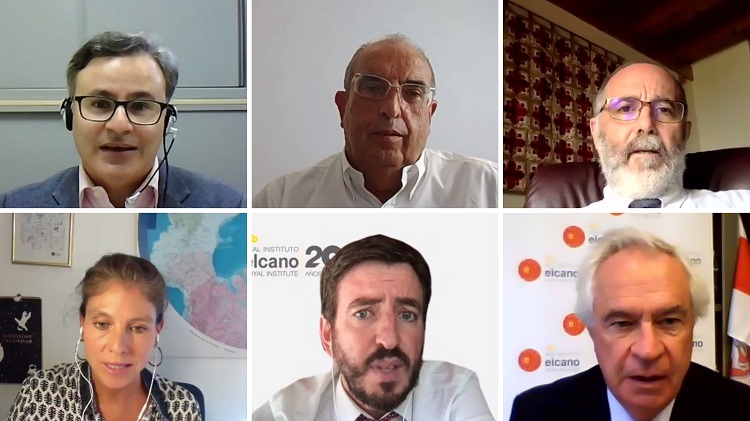Eduardo González
Experts from the Elcano Royal Institute warned yesterday that international jihadism has increased its power in the world twenty years after the September 11, 2001 attacks in the United States, which would demonstrate that the global war against terrorism unleashed after that massacre has been a “failure” whose main example is the recent military victory of the Taliban in Afghanistan.
“When 9/11 occurred, Al Qaeda was a unitary organization of a few thousand militants in Pakistan and Afghanistan,” said Fernando Reinares, senior researcher and director of the Program on Violent Radicalization and Global Terrorism, during his intervention at the virtual roundtable The consequences of 9/11, 20 years later, organized by the Elcano Royal Institute.
“Twenty years later, Al Qaeda is a decentralized global structure with six territorial branches and a fourfold increase in the number of militants,” he continued. “In Spain, only five years after 9/11 we already had among adult Muslims 16% more sympathizers of Usama bin Laden (historical leader of Al Qaeda), and the percentages were similar in France and the United Kingdom,” Reinares assured. Apart from that, “in recent decades there has been an unprecedented mobilization of jihadists, since among the foreigners who fought in Syria and Iraq between 2012 and 2019, one fifth came from Europe.”
“What this reality reveals is that the global war on terror has been a failure, and has even been counterproductive, because it has increased the terrorist phenomenon,” he warned. In these circumstances, the international “jihadist propaganda” perceives as “a success” not only the victory of the Taliban in Kabul, but the mere fact that “the Taliban managed to sit down at a negotiating table with the government of the main Western power”, warned Reinares.
“When the training in Afghanistan ended, the Army collapsed”
In a similar vein, Haizam Amirah Fernández, senior researcher and expert in international relations, political Islam and processes of transition to democracy in the Arab world, stated that the reaction of the United States after 9/11 was “the one sought by those who committed the attacks” and “was used by the authoritarian regimes of the region to perpetuate themselves in power” and by the radical Islamist groups to promote “a war of attrition” on the part of the United States. An example of this war of attrition, he pointed out, is that “twenty years later, and as Bin Laden had already anticipated, the United States has left Afghanistan”, which “has been perceived as a humiliating exit and as a surrender, a flight” that could feed the “extremists who see that this is the way and that the Empire can be defeated”, he said.
In the opinion of Félix Arteaga, senior researcher on international security and defense, “the fight against insurgency has worked very badly” and it has been demonstrated that “training cannot work in the long term either”. “In Afghanistan or Mali, training has been of little use, and when the support work in Afghanistan ended, the army collapsed,” he lamented.
For her part, Carlota García Encina, senior researcher on the US, transatlantic relations and security and defense, after the 9/11 attacks there was a political unity in the United States around President George W. Bush “as never seen before”, but the intervention in Iraq in 2003 was a “turning point”, with a drop in international support and “tensions in the transatlantic relationship”. As a result, Bush’s two successors, Barack Obama and Donald Trump, each with very different arguments, embarked on a policy of rejecting the initiatives after 9/11 that has been topped off by the current president, Joe Biden, who, “aware that the Americans are not willing to support missions abroad, endorsed the agreements between the Taliban and Trump and decided to leave Afghanistan, the last ember of the interventions, and close the period of failures that began in 2001,” he added.
Finally, Luis Simón, director of the Elcano Royal Institute Office in Brussels, said that “the fall of Afghanistan probably represents the end of an era: that of the post-Cold War”, an era that was “dominated by US and Western political hegemony and by the absence of rivals to limit the will of the US and the West to reorder the world” and in which there was “the belief that it was possible to redesign the world based on military interventions and state-building”. However, Afghanistan has revealed “the excesses and limits of this model, not to say its failure”.







